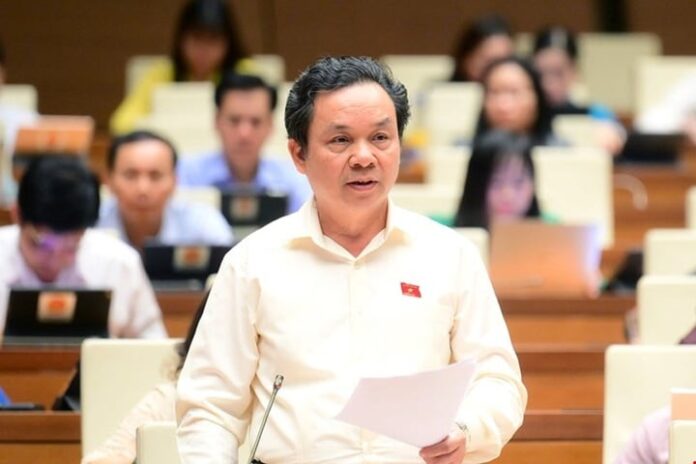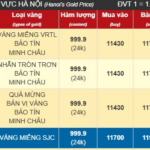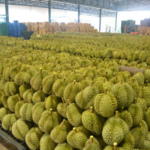During the discussion on this content, Mr. Hoang Van Cuong expressed his interest in Clause 9, Article 5 of the draft law, which stipulates import tax exemption for goods serving the railway project that cannot be produced domestically.
Mr. Cuong agreed with the regulation that assigns the Prime Minister to issue a list of goods, services, and railway industry products that will be entrusted or ordered from Vietnamese enterprises for production. To encourage these enterprises to take on the task and assure them of a secure market, we must ensure that the domestic market is reserved for these enterprises, and there should be no importation of similar products from foreign countries.
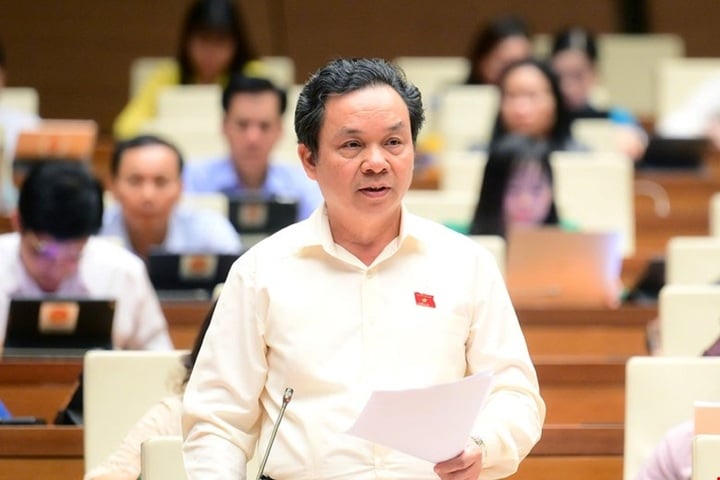
Representative Hoang Van Cuong. (Photo: Media Congress)
However, according to Mr. Cuong, Clause 9, Article 5, exempts import tax on goods serving the railway industry that cannot be produced domestically.
“We know that up to the present time, we do not have a railway industry, and thus, all products serving the railway industry, including those the State plans to order from enterprises, cannot be produced domestically as of now.”
“If we stipulate as mentioned above, it is very likely that the domestic enterprises assigned with the task will import these products from foreign countries or even hire foreign entities to produce the components while we assemble them here. This will certainly defeat our goal of developing the railway industry,” Mr. Cuong added.
Therefore, he proposed that there should be a regulation prohibiting the importation of goods, services, and components for assembly into products and services belonging to the list of items that the State will assign or order from domestic organizations and enterprises for production.
Regarding the regulation encouraging organizations and individuals to invest in railway projects with non-state capital sources, Mr. Cuong considered this a very correct policy. However, Article 25 only stipulates the designation of investors for projects that the railway investors themselves propose or for projects invested in through the public-private partnership (PPP) mode.
For railway projects that the State is proposing to invest in with state capital, there is currently no mechanism to allow private investors to participate. For example, there is currently an investor proposing to invest in the North-South high-speed railway project, but we do not have a mechanism to allow their participation.
“Therefore, I propose that Article 25 should be supplemented with a method for selecting private investors to participate in railway projects that the State plans to invest in with state budget funds, either wholly or partially. Or it should be stipulated that the Prime Minister issue regulations on criteria for selecting private investors to invest in railway projects planned for investment with state budget funds,” he suggested.
He also suggested selection criteria based on three principles: not changing the project’s goals and technical requirements, not increasing capital investment costs when private investors participate, and bringing higher operational efficiency to the State than if the State invested alone.
Meanwhile, delegate Trinh Xuan An (from Dong Nai province) expressed his agreement with the opinions of many delegates regarding allowing investors to designate contractors who can demonstrate professional capacity and capital arrangement ability. While the goal of this regulation is correct, it needs to be supplemented to ensure the financial capacity of the investors.
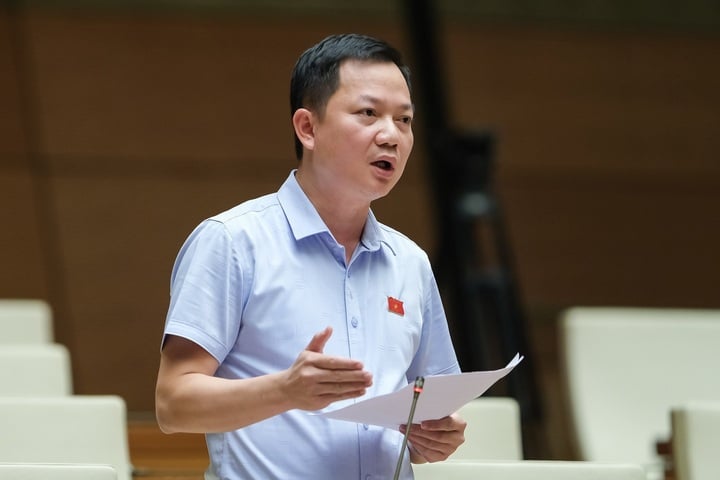
Delegate Trinh Xuan An. (Photo: Media Congress)
“It is not possible to provide a general report on ownership capital and borrowing. It is necessary to be more specific about the financial capacity of the investors. Recently, there was a case where an investor claimed to have $100 billion to implement the project. They submitted a document, but their proof was very vague. It is necessary to have a mechanism to evaluate, even an evaluation council, and especially independent auditors. There must also be cross-checking mechanisms to ensure that we have investors with real capacity,” said Mr. An.
Meanwhile, delegate Nguyen Minh Duc (from Ho Chi Minh City) stated that, in the context that the railway sector has accounted for a very small proportion of the transport structure and has lagged in development compared to other modes of transport for a long time, it is urgent to complete the legal corridor to unblock resources and mobilize social investment, synchronize planning, and connect economic regions.
This is also the legal basis for developing and implementing key national projects, such as the North-South high-speed railway, urban railways, and routes such as Hanoi – Lao Cai, Hanoi – Hai Phong – Lang Son.
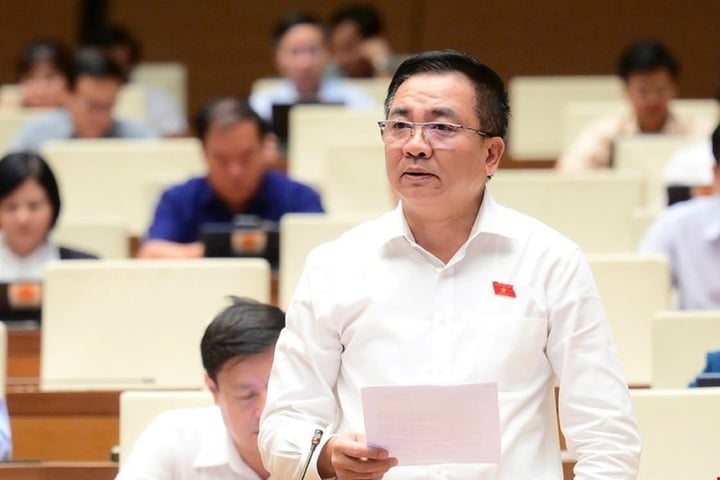
Delegate Nguyen Minh Duc. (Photo: Media Congress)
Mr. Duc also supported expanding the subjects and forms of investment to mobilize all economic resources and private sector participation in railway development. “The involvement of the private sector in the railway sector has the advantage of mobilizing investment capital, as investing in railways requires a large amount of capital.
“However, there must be very strict regulations to ensure a cautious mechanism and policy, especially regarding issues related to national security, to avoid cases where projects are transferred or sold to other investors or foreign investors,” he added.


























